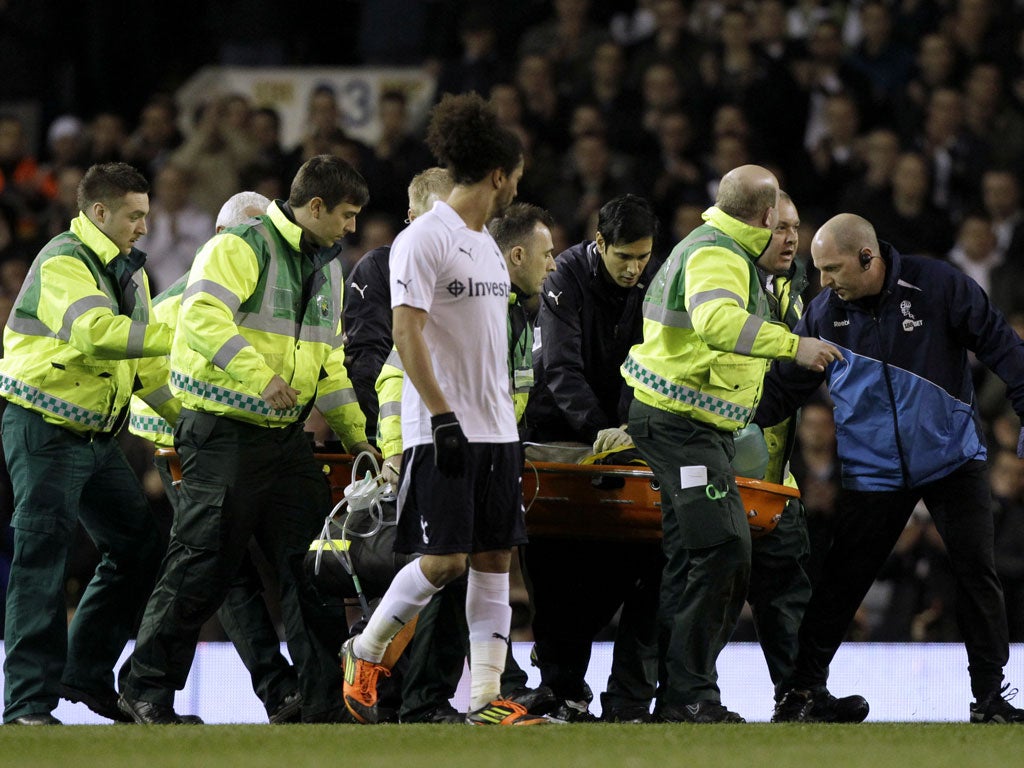Howard Webb: If players feign injuries, others could die
Play-acting puts at risk those in need of real treatment, says England's top referee

Howard Webb, England's leading referee and the man in charge of the game in which Fabrice Muamba collapsed, has cautioned players against "crying wolf" by feigning injury as it could increase the chance of on-field tragedy.
Webb, speaking for the first time about Bolton's FA Cup tie at Tottenham in March where Muamba suffered a cardiac arrest, suggested yesterday that any delay in getting treatment to the player in such a situation could prove crucial – and if players are repeatedly play-acting, referees may be less likely to stop play promptly.
Webb, in Bucharest for Fifa's medical conference, said: "If the game had not been stopped within 20 or 30 seconds, that might have made a difference to his chances of recovery.
"One of our obligations as a referee is to try and observe fair play and keep the game flowing when we can. But, if players cry wolf too many times, then there is a possibility that maybe we will not react in the way we need to do based on what we saw there.
"If we come under criticism for stopping the games too many times for doctors or physios to enter the field of play then referees might be inclined not to stop the game.
"I'm not saying it's a particularly big problem but I have seen games stopped where players weren't as seriously injured as they would have you believe and that is an issue when you are dealing with something as serious as this."
According to Fifa, 84 players have died after suffering cardiac arrests during matches over the last five years. A Serie B player, Piermario Morosini of Livorno, died during a game last month. In that period, a further 23, including Muamba, survived such incidents. What made Muamba's experience extraordinary was that his heart stopped beating for 78 minutes.
"The fact that he wasn't rolling around screaming in agony, the way he went down with no contact, meant immediately it was serious," said Webb. "And it was not only me – the players recognised it. You see William Gallas's reaction – an opposing player – immediately waving to the bench to come on.
"It just puts things into perspective. The game is important, the result is important and it does affect people's livelihoods, we are reminded of that on a regular basis – but without life there is no football at all."
Muamba was discharged from hospital in east London on 16 April and was well enough to make an emotional appearance at Bolton's Premier League game with Tottenham at the Reebok earlier this month.
According to Fifa's medical officer, Jiri Dovak, there is the possibility that Muamba could in due course make a full return to the sport. Dovak explained that the cause of Muamba's heart attack, a condition called arrhythmia, can be controlled.
He said: "He has received the internal automatic defibrillator so yes he could return. There is a young American player [Craig Hulse] who had a cardiac arrest three years ago when he was aged 26 and resuscitated successfully and he has played more than 100 competitive matches since."
Join our commenting forum
Join thought-provoking conversations, follow other Independent readers and see their replies
Comments
Bookmark popover
Removed from bookmarks